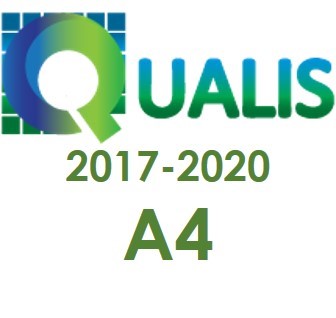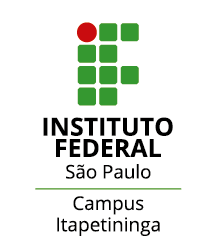Portuguese Teachers’ Experience During the Pandemic: Lessons Learned and Changes to be Done
Keywords:
Portuguese Teachers. Pandemic. Professional Learning. Online Teaching.Abstract
This paper is part of a broader study which aims at investigating teachers' experiences during the pandemic. The study focuses on teachers' professional learning and changes to be developed based on their experience during online teaching. The study is part of an international project which involved 2,638 teachers from all sectors of education and across all disciplinary areas. Data were collected through an online questionnaire. Findings indicate that, despite facing big challenges posed by the abrupt shift to online teaching, teachers acquired new skills related not only to the use of digital platforms but also to activity planning, collaborative work, and formative assessment. However, they also expressed the need for change, particularly regarding continuous education, teaching conditions, and access to resources.
Downloads
References
ATMOJO, A.; NUGROHO, A. EFL classes must go online! Teaching activities and challenges during COVID-19 pandemic in Indonesia. Register Journal, Salatiga, v. 12, n. 1, p. 49-76, 2020. https://doi.org/10.18326/rgt.v13i1.49-76
ÁVALOS, B.; FLORES, M. A. School-based teacher collaboration in Chile and Portugal. Compare: A Journal of Comparative and International Education, Londres, v. 51, n. 1, p. 1-18, 2021. https://doi.org/10.1080/03057925.2020.1854085
ÁVALOS, B.; FLORES, M. A.; ARANEDA, P. Battling to keep education going: Chilean and Portuguese teacher experiences in COVID-19 times. Teachers and Teaching: Theory and Practice, Londres, v. 27, n. 1, p. 1-17, 2021. https://doi.org/10.1080/13540602.2021.2012758
AZEVEDO, J. COVID e educação: da emergência às oportunidades. In: ALVES, J.;
BARRETO, A. C. F.; ROCHA, D. S. COVID-19 e Educação: resistências, desafios e (im) possibilidades. Revista Encantar: Educação, Cultura e Sociedade, Salvador, v. 2, p. 1-11, 2020. Disponível em: https://www.revistas.uneb.br/index.php/encantar/article/view/8480. Acesso em: 20 setembro de 2024.
DARLING-HAMMOND, L.; HYLER, M. Preparing educators for the time of COVID … and beyond. European Journal of Teacher Education, Londres, v. 43, n. 4, p. 457-465, 2020. https://doi.org/10.1080/02619768.2020.1816961
DEMPSEY, T.; MESTRY, R. Teachers’ perceptions and experiences of navigating continuing professional development during the COVID-19 pandemic. Education Sciences, Basel, v. 13, n. 9, p. 933, 2023. https://doi.org/10.3390/educsci13090933
ESTEVES, M. Análise de conteúdo. In: LIMA, L.; PACHECO, J. A. (Orgs.). Fazer Investigação: Contributos para a elaboração de dissertações e teses. Porto: Porto Editora, 2006. p. 105-126.
FLORES, M. A. et al. Ensino remoto de emergência em tempos de pandemia: A experiência de professores portugueses. Revista Portuguesa de Investigação Educacional, Lisboa, n. 21, p. 1-26, 28 set. 2021a. https://doi.org/10.34632/investigacaoeducacional.2021.10022
FLORES, M. A. et al. Ensinar em tempos de COVID-19: um estudo com professores dos ensinos básico e secundário em Portugal. Revista Portuguesa de Educação, Minho, v. 34, n. 1, 2021b. https://doi.org/10.21814/rpe.21108
FLORES, M. A. et al. Remote teaching in times of COVID-19: teachers’ adaptation and pupil level of participation. Technology, Pedagogy and Education, v. 33, n. 1, p. 57-72, 2023. https://doi.org/10.1080/1475939X.2023.2270491
FLORES, M. A.; GAGO, M. Teacher education in times of COVID-19 pandemic in Portugal: national, institutional and pedagogical responses. Journal of Education for Teaching, Londres, v. 46, n. 4, p. 507-516, 2020. https://doi.org/10.1080/02607476.2020.1799709
FLORES, M. A. et al. Online learning, perceived difficulty and the role of feedback in COVID-19 times. Research in Post-Compulsory Education, Londres, v. 29, n. 2, p. 324-344, 2024. https://doi.org/10.1080/13596748.2024.2330784
FLORES, M. A.; SMITH, K. Formação de professores no contexto pós-Covid: lições aprendidas a partir da experiência de formadores de professores. Revista Internacional de Formação de Professores. Itapetininga, n. 7, p. e022013. https://periodicoscientificos.itp.ifsp.edu.br/index.php/rifp/article/view/799
GONZÁLEZ, C.; PONCE, D.; FERNÁNDEZ, V. Teachers’ experiences of teaching online during COVID-19: implications for post pandemic professional development. Education Tech Research Dev, v. 71, p. 55-78, 2023. https://doi.org/10.1007/s11423-023-10200-9.
KIDD, W.; MURRAY, J. The COVID-19 pandemic and its effects on teacher education in England: how teacher educators moved practicum learning online. European Journal of Teacher Education, Londres, v. 43, n. 4, p. 542-558, 2020. https://doi.org/10.1080/02619768.2020.182048.
LEMAY, D.; DOLECK, T.; BAZELAIS, P. Transition to online teaching during the COVID-19 pandemic. Interactive Learning Environments, Londres, Volume 31, n. 4, p. 2051-2062. 2023. https://doi.org/10.1080/10494820.2021.1871633.
ORHAN, G.; BEYHAN, O. Teachers’ perceptions and teaching experiences on distance education through synchronous video conferencing during COVID-19 pandemic. Social Sciences and Education Research Review, Constanta, v. 7, p. 18-44, 2020. https://econpapers.repec.org/RePEc:edt:jsserr:v:7:y:2020:i:1:p:8-44
SILVA MONTEIRO, S. (Re)inventar educação escolar no Brasil em tempos da COVID-19. Revista Augustus, Rio de Janeiro, v. 25, n. 51, p. 237-254, 2020. https://doi.org/10.15202/1981896.2020v25n51p237
TRINDADE, S.; CORREIA, J.; HENRIQUES, S. O ensino remoto emergencial na educação básica brasileira e portuguesa: a perspectiva dos docentes. Revista Tempos e Espaços em Educação, São Cristovão, v. 13, n. 32, e-14426, 2020. https://doi.org/10.20952/revtee.v13i32.14426
TRUST, T.; WHALEN, J. Should teachers be trained in emergency remote teaching? Lessons learned from the COVID-19 pandemic. Journal of Technology and Teacher Education, Londres, v. 28, n. 2, p. 189-199, 2020.
UNESCO. COVID-19 educational disruption and response. Disponível em: https://en.unesco.org/themes/education-emergencies/coronavirus-school-closures. Acesso em: 29 set. 2020.
VAN DER SPOEL, I.; NOROOZI, O.; SCHUURINK, E.; VAN GINKEL, S. Teachers’ online teaching expectations and experiences during the Covid-19 pandemic in the Netherlands. European Journal of Teacher Education, Londres, v. 43, n. 4, p. 623-638, 2020. https://doi.org/10.1080/02619768.2020.1821185
SCULL, N.; PHILLIPS, M.; SHARMA, U.; GARNIER, K. Innovations in teacher education at the time of COVID-19: an Australian perspective. Journal of Education for Teaching, Londres, v. 46, n. 4, p. 497-506, 2020. https://doi.org/10.1080/02607476.2020.1802701
SEPULVEDA-ESCOBAR, P.; MORRISON, A. Online teaching placement during the COVID-19 pandemic in Chile: challenges and opportunities. European Journal of Teacher Education, Londres, v. 43, n. 4, p. 587-607, 2020. https://doi.org/10.1080/02619768.2020.1820981
MAKIPAA, T.; HAHL, K.; LUODONPAA-MANNI, M. Teachers’ perceptions of assessment and feedback practices in Finland’s foreign language classes during the Covid-19 pandemic. CEPS Journal, Ljubljana, v. 11, p. 219-240, 2021. https://doi.org/10.26529/cepsj.1108.
YAKIMOVA, S. et al. Métodos de avaliação de aprendizagem remota implementados durante a COVID-19: uma revisão abrangente. Revista on line de Política e Gestão Educacional, Araraquara, v. 27, n. 00, p. e023059, 2023. https://doi.org/10.22633/rpge.v27i00.18529.
YANG, M.; OH, Y.; LIM, S.; KIM, T. Teaching with collective resilience during COVID-19: Korean teachers and collaborative professionalism. Teaching and Teacher Education, v. 126, 2023. https://doi.org/10.1016/j.tate.2023.104051
Downloads
Published
How to Cite
Issue
Section
License
Copyright (c) 2024 Revista Internacional de Formação de Professores

This work is licensed under a Creative Commons Attribution-NonCommercial-ShareAlike 4.0 International License.



 Este trabalho está licenciado sob uma licença
Este trabalho está licenciado sob uma licença 